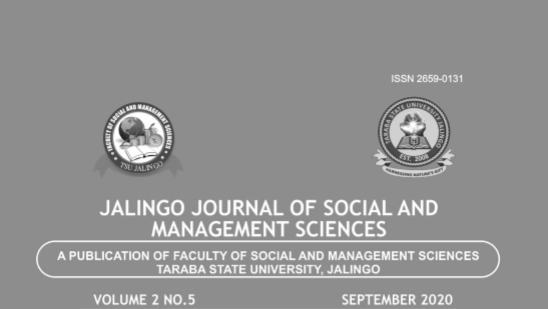Assessment of Cybercrime and Nigeria’s National Security: A Study of Selected Ministerial Departments and Security Agencies in Nigeria
Keywords:
Cybercrime, Insecurity, National Security, NigeriaAbstract
The contribution of internet to the development of the nation has been marred by the evolution of new waves of crime. The internet has also become an environment where the most lucrative and safest crime thrives, thereby posing threat to national security. This study assessed Cybercrime and Nigeria’s National Security (2004-2019): A Study of Selected Ministerial Departments and Security Agencies in Nigeria. The differential association theory was adopted as a theoretical framework. This theory explains the social effect of crime and criminality. Quantitative and qualitative methods which relied on both secondary and primary sources of data were utilized. The study revealed that unemployment, growing poverty levels, unethical behaviors, peer group influence, corruption and weak security infrastructures account for the emergence of cybercrime in Nigeria. The study also found that, cyber insecurity has economic, financial, social, security and political impacts on the national security of Nigeria and Nigerians Based on the findings, the study strongly recommended that, government needs to consider massive employment generation as an issue of major focus in the national development and economic growth plan. To tackle poverty in the country, the government needs to formulate and implement programs that will directly benefit the poor, by restructuring sources of Nigeria’s gross domestic product to significantly include variety of industries that are labour intensive, such as agriculture and industrialization. This will lead to the diversification of the country’s sources of revenue, thereby reducing its overdependence on oil revenue.

Downloads
Published
Issue
Section
License
Copyright (c) 2023 JALINGO JOURNAL OF SOCIAL AND MANAGEMENT SCIENCES

This work is licensed under a Creative Commons Attribution-NonCommercial 4.0 International License.
